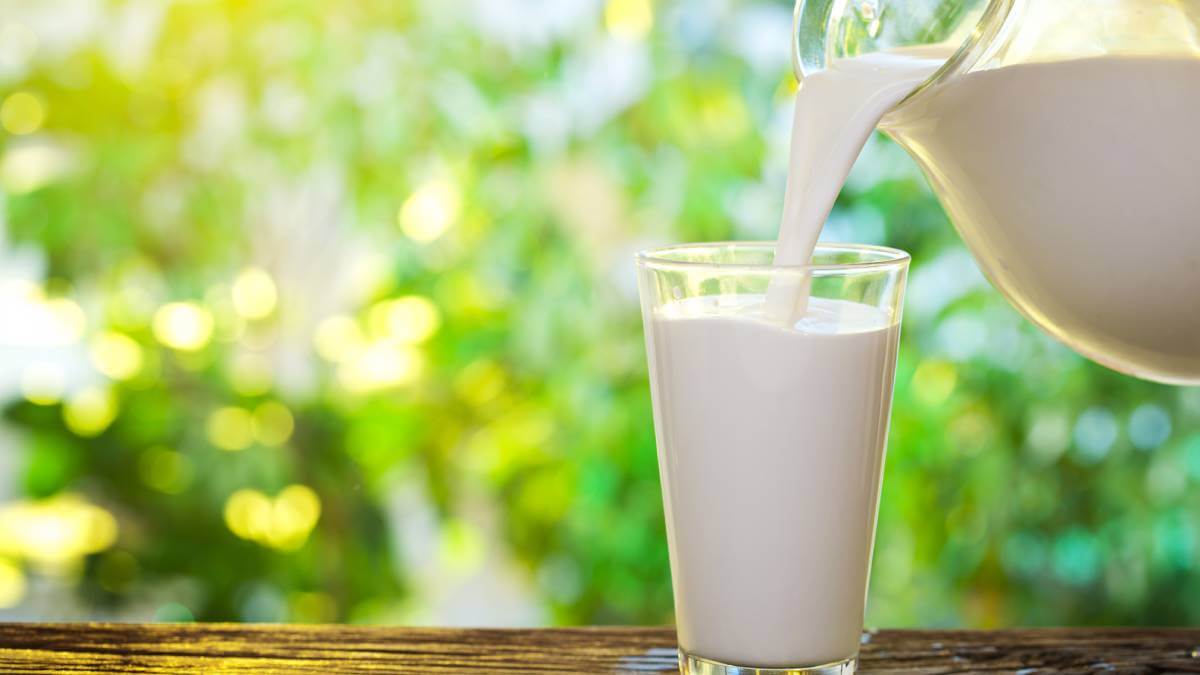It’s a staple inside most houses, but have you ever thought of using milk in your garden?
Turns out, it’s more than a moistener for your cereal, it’s also a handy little fertiliser and can fight some garden gremlins.
And if that’s a surprise to you, it’s no surprise for old-timey gardeners, who have been using it for generations.
So you’ve got a bit of milk? How do you splash it about on your garden for the best results?
Powdery mildew
Milk is a handy little fungicide, especially for those who want to keep their garden chemical free.
However, before you go pouring milk on your pumpkins, there are a few rules.
Milk is great for powdery mildew, which is a fungal disease that shows up as a white coating on plants. It’s common when humidity is high and spreads on the wind.
So, how do you use it? First of all, ease up on the idea of full-strength milk for a full-strength result.
You need to mix it to a 40-60 ratio of milk to water and use a spray bottle to apply.
Science isn’t exactly sure why it works, possibly proteins in the fat, but it has an antiseptic effect when exposed to sunlight, so always spray in full light.
It also works better as a preventative than a cure, so spray early if your garden regularly gets powdery mildew.
Spot on, or off
Roses are temperamental things. Look away for a few days and there’s always something trying to have a crack at them. Black spot is another fungus that loves roses, but apparently milk can help here too.
Your first step should be to cut off any leaves that have gone too far. For anything left, spray a milk solution of one part milk and two parts water once a week until the problem goes away. Persistence is the key.
Good for the soil
Milk is a handy fertiliser. Occasionally.
It’s a good fertiliser in the same way it’s good for humans. It’s a good source of calcium, beneficial proteins, vitamin B and sugars. Microbes that feed on the fertiliser components of milk are also beneficial to the soil.
A 50-50 water mix is recommended to use as a fertiliser. Use a spray bottle and apply to the leaves of your plants or pour it onto the ground around plants.
And I say use occasionally, because pouring too much milk on your garden can get a bit stinky. It will eventually subside, but you’ve got to live with it in the meantime.
If you are using milk as a fertiliser, try to avoid using a chemical pesticide or fertiliser soon after as they will kill the bacteria in the milk that improves the soil.
Aphids away
Milk can also be used to control aphids. Studies have shown it’s an effective control measure if used regularly.
I found it hard to pin down how much milk you could use – recommendations ranged from a 5 per cent solution to whole milk – so maybe start off with a light solution and see what works from there.
If you are using a lower solution, it is recommended to use it every day until the aphids disappear.
Disinfectant
And finally, when you have finished all your gardening for the day you can disinfect your tools in milk.
Researchers at Ohio State University found that dipping pruners in milk was just as effective as dipping them in a bleach solution.
Have you used milk in your garden? Did it work? Why not share your experience in the comments section below?
Also read: How to keep Indian mynas out of your garden


Milk, a vital food commodity in the majority of Australian homes, has grown more expensive recently. Unless you are a totally desperate gardener with your own cow, I do not think you should be wasting a valuable food on your garden.